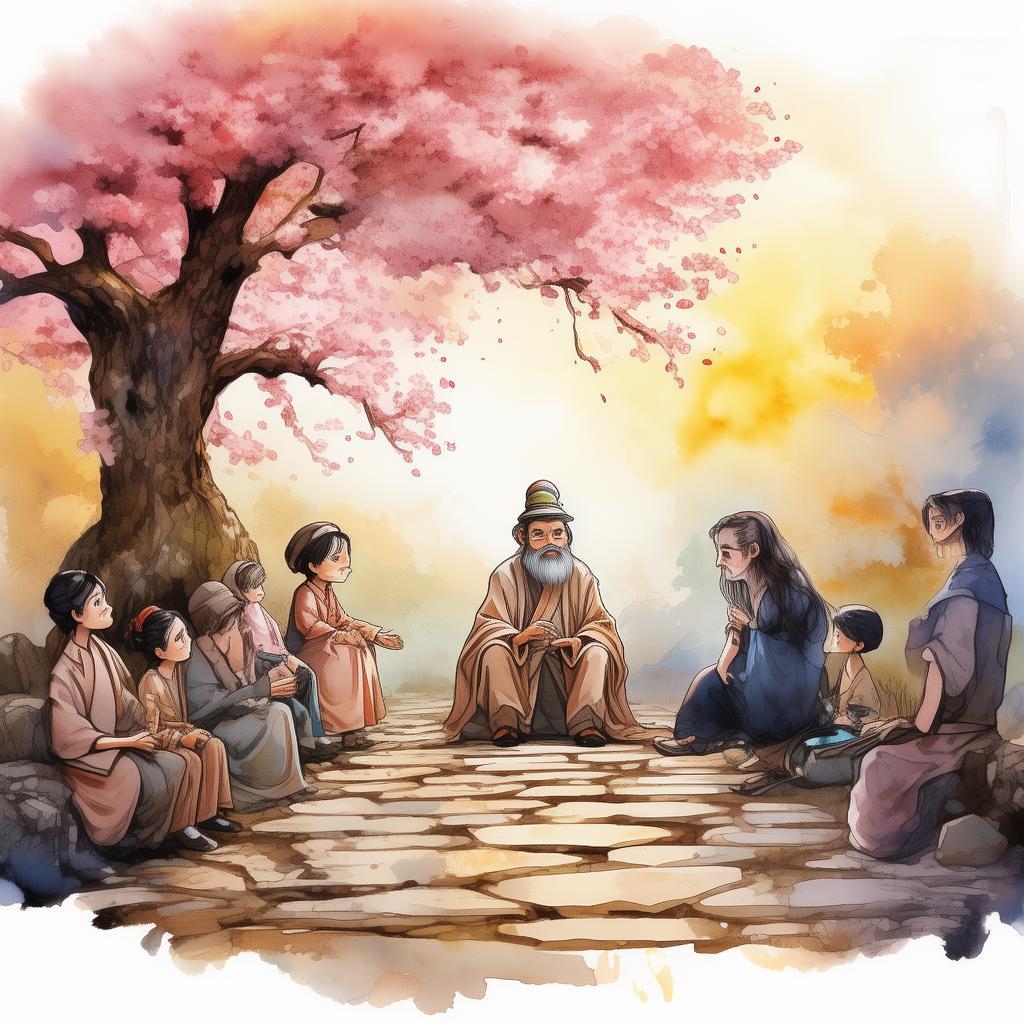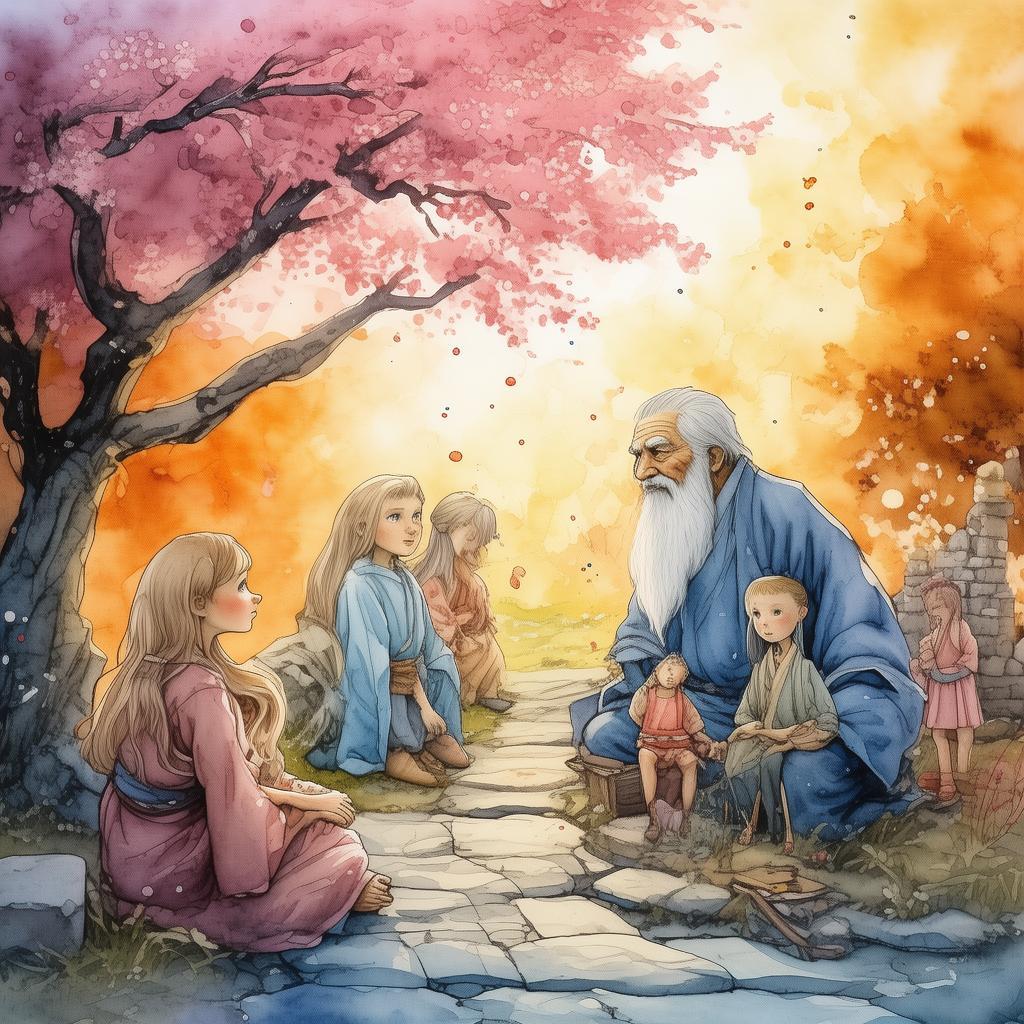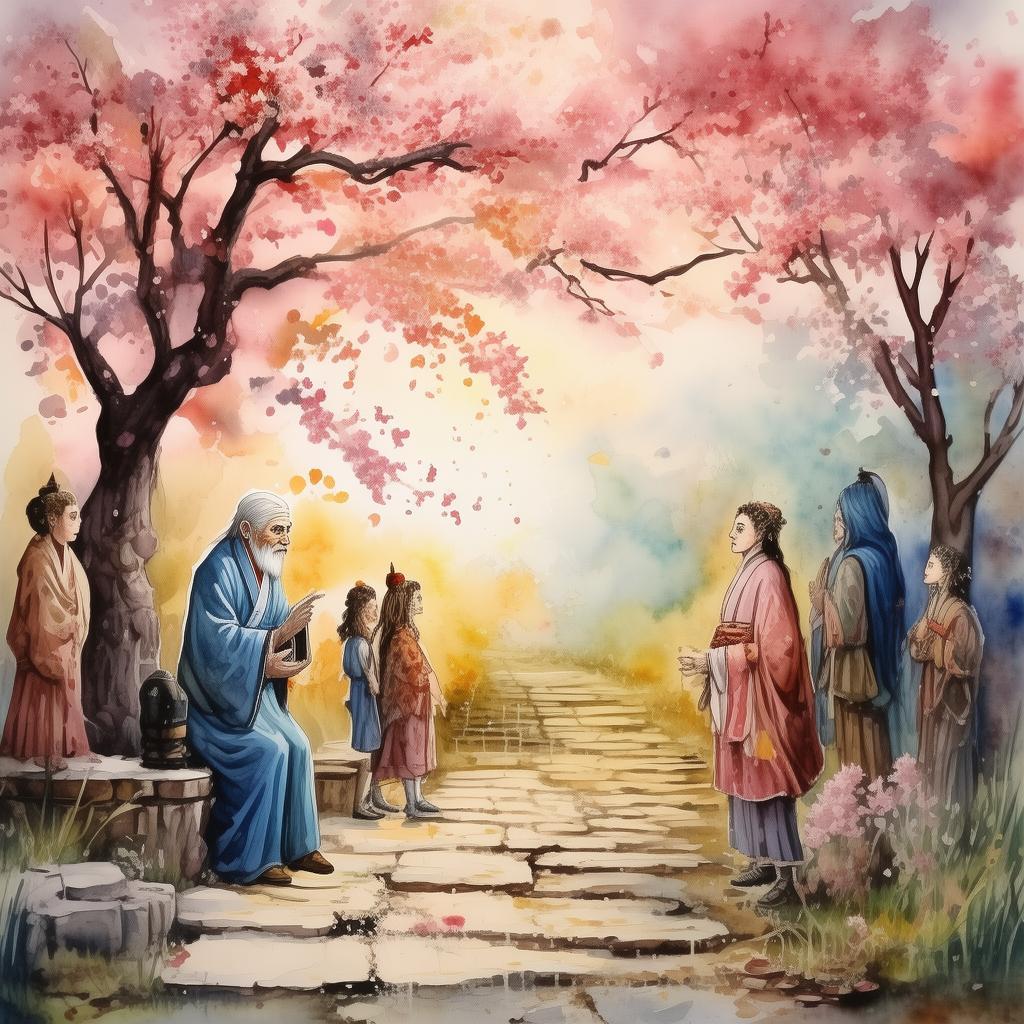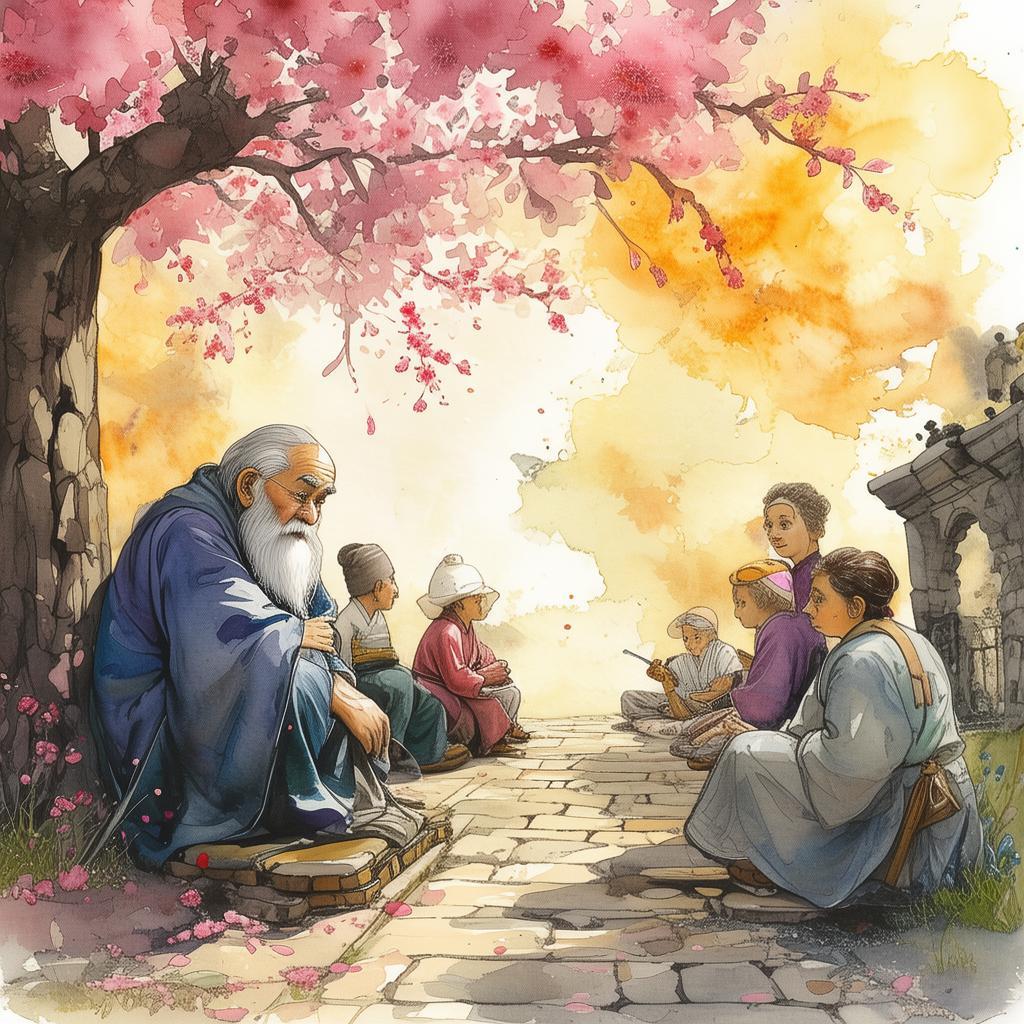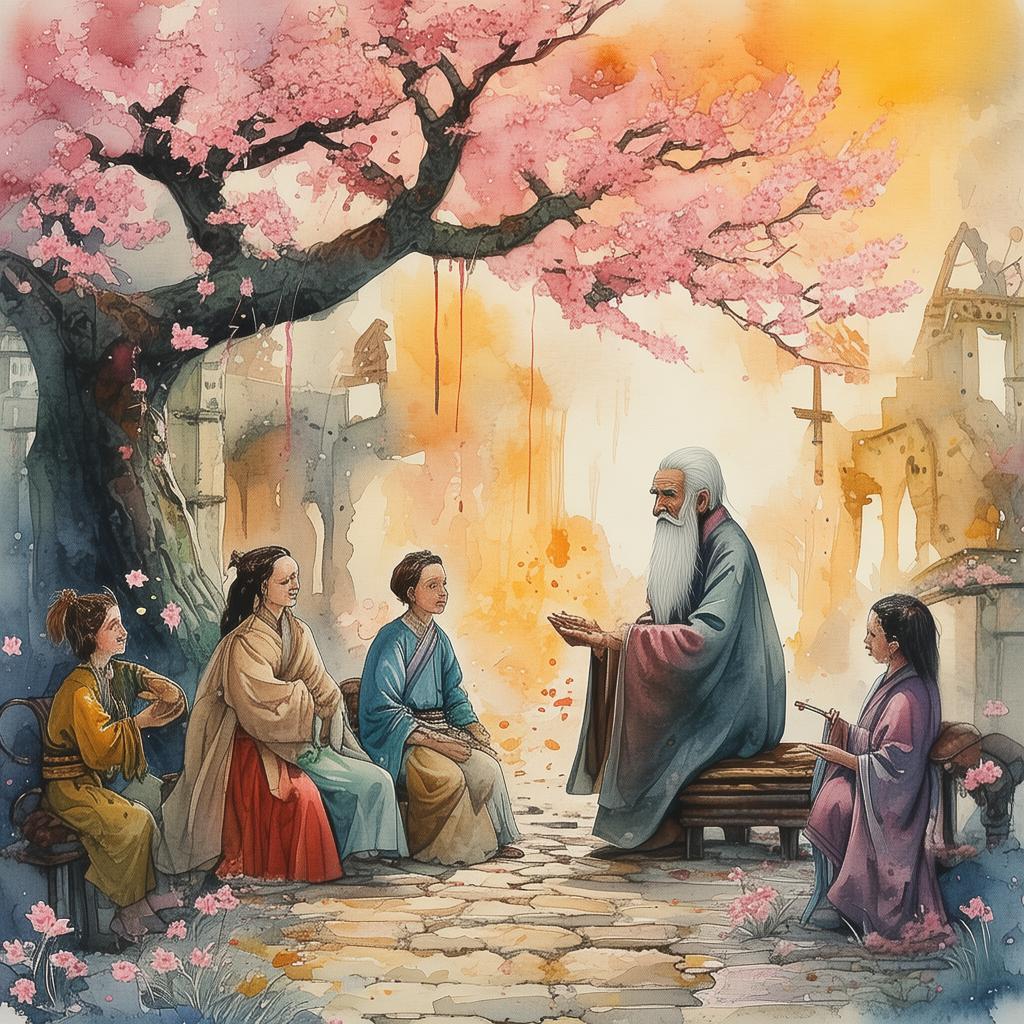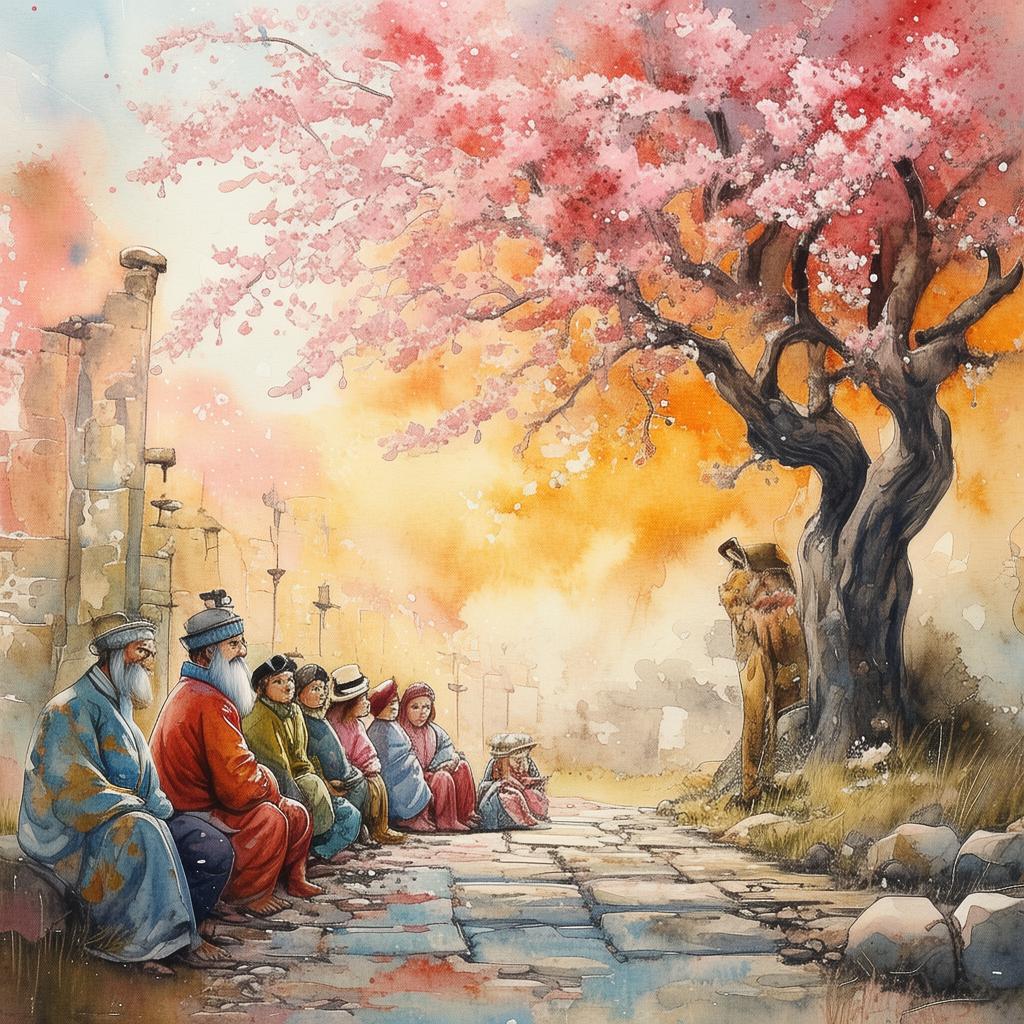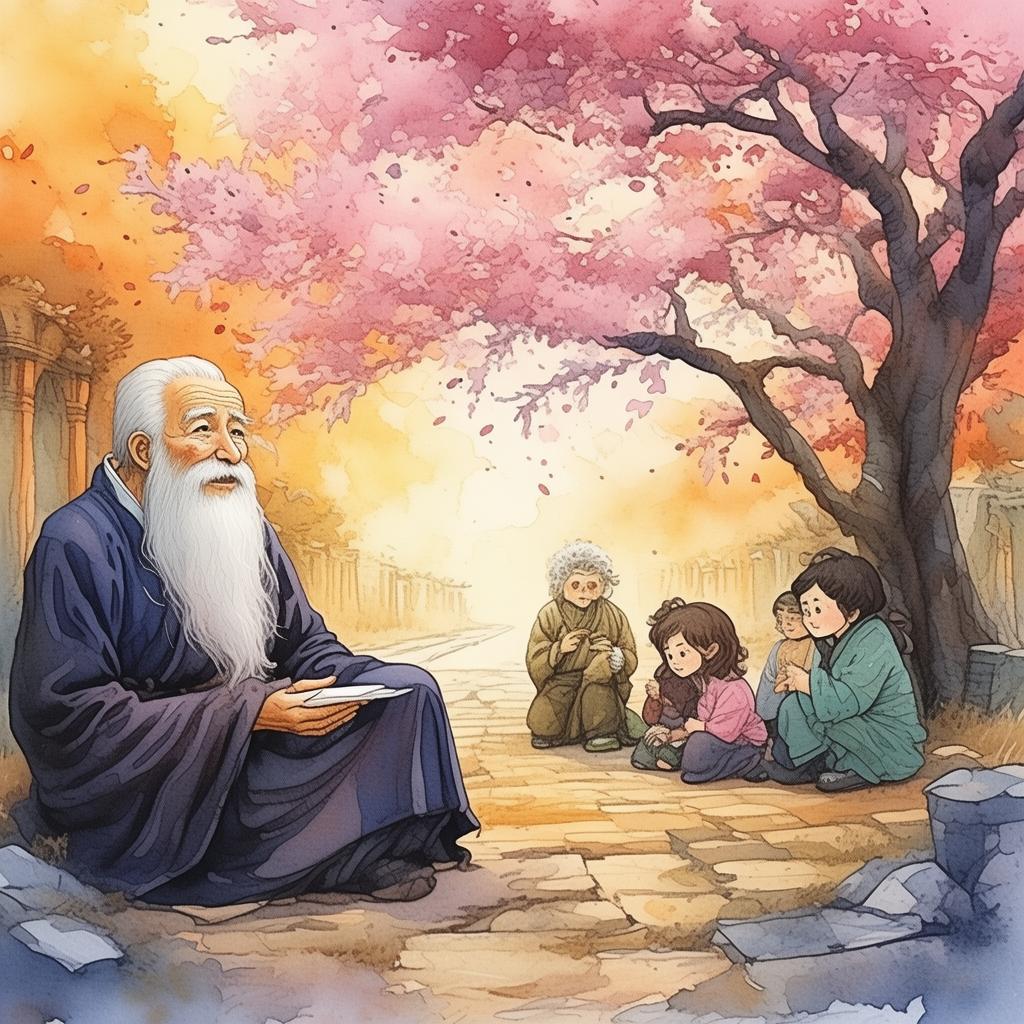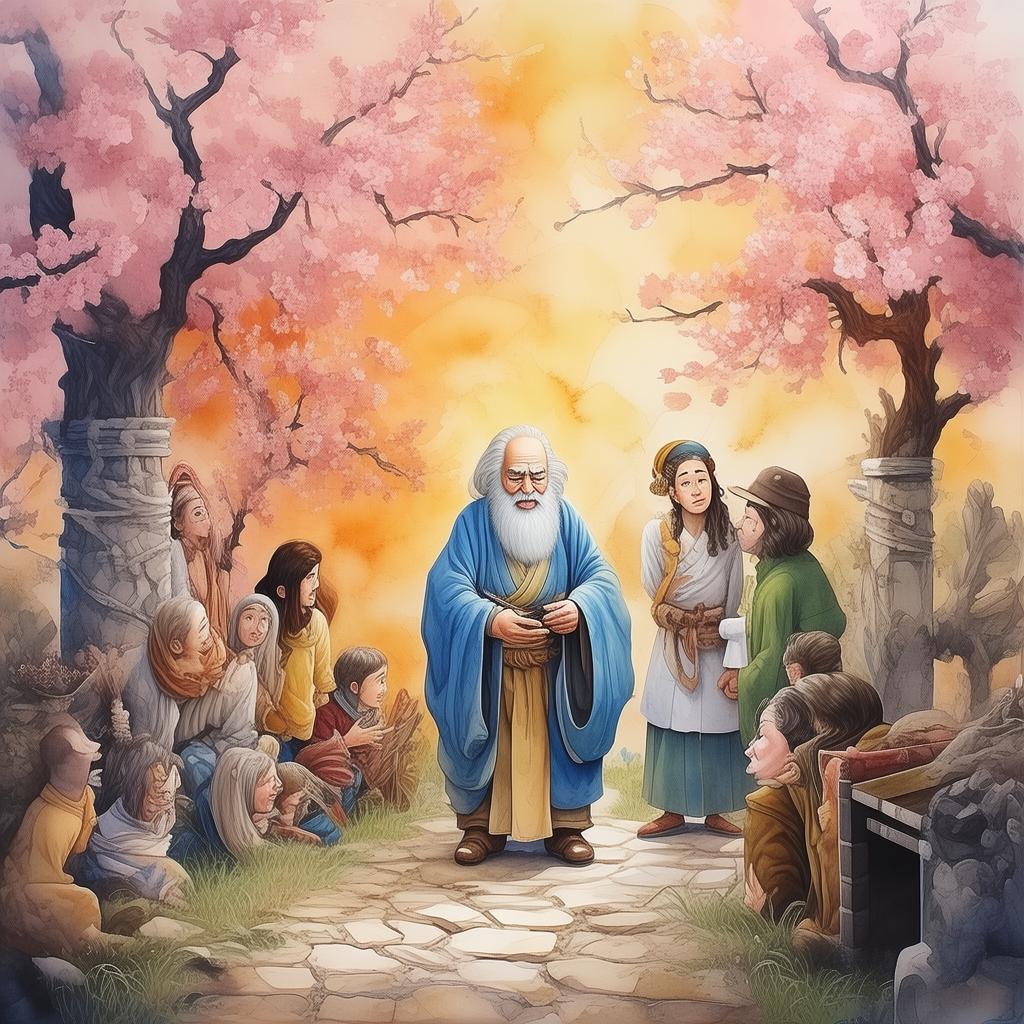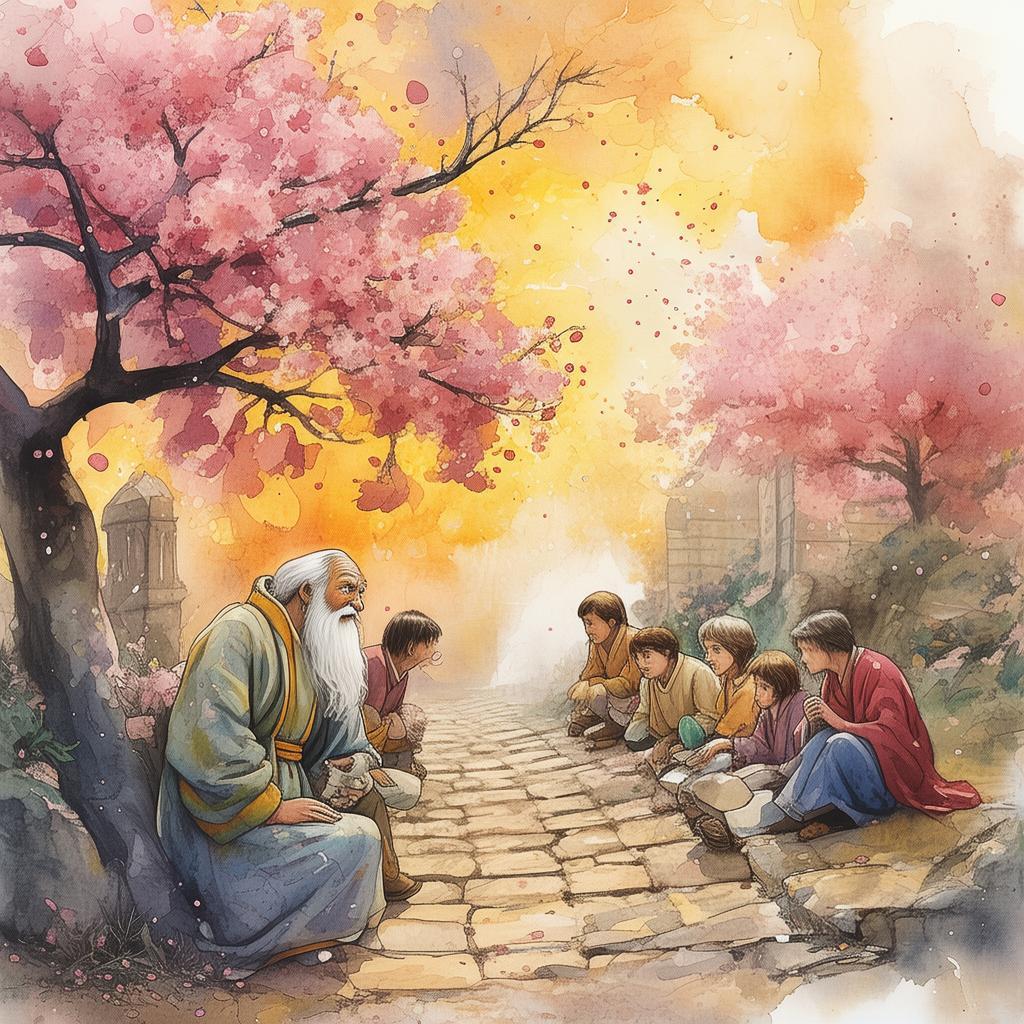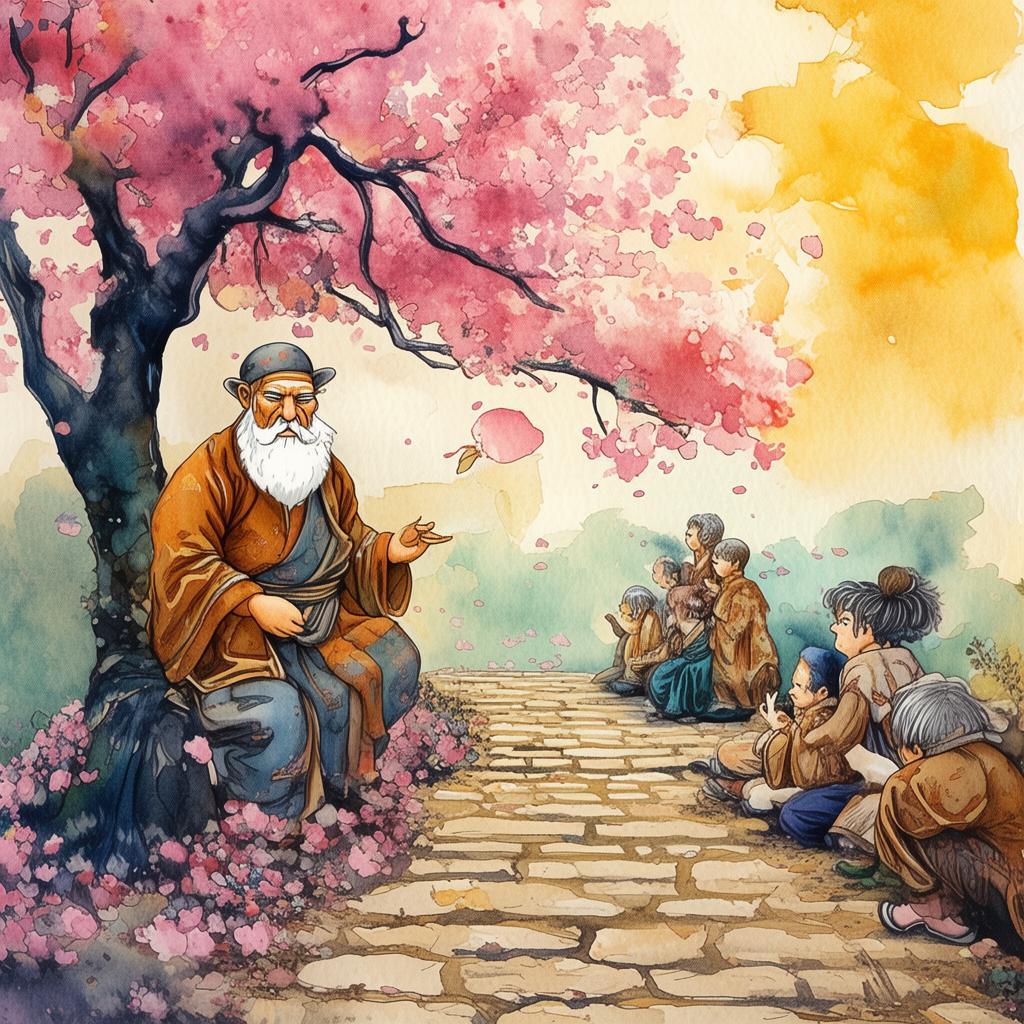The Paddle's Redemption: A Tale of Betrayal and Rebirth
In the heart of ancient China, there lay a village nestled between rolling hills and the meandering rivers of the Yangtze. The village was known for its craftsmanship, particularly the making of wooden paddles used for fishing and river trade. Among the artisans was a young man named Jing, whose hands had a natural grace when crafting the paddles, and whose heart was as gentle as the rivers he rowed.
Jing was the son of the village's most esteemed paddle maker, a man known for his integrity and skill. Jing had always aspired to follow in his father's footsteps, but there was a dark shadow that lay over his future. His older brother, Hong, had been cast out of the village for his unscrupulous ways, a stain on the family's honor that no one dared to speak of.
The story begins on a fateful day when the river was in full flood, and the village was preparing for the annual festival. Jing had just finished his finest paddle, one that he hoped would bring good fortune to its owner. It was during this time that a mysterious figure approached him, offering to purchase the paddle for an exorbitant sum. The man's eyes held a promise of untold wealth, and the allure was too great for Jing to resist.
The paddle was delivered to the mysterious man, who disappeared into the floodwaters. Days passed, and the river returned to its calm state, but Jing's brother Hong returned to the village. His appearance was shrouded in mystery, and the villagers whispered of his new role as a river pirate. It was not long before Jing realized that the paddle he had sold had been used to guide a pirate ship to the village.
The pirates descended upon the village, taking what they wanted and leaving destruction in their wake. In the chaos, Jing's father was found dead, and Jing's heart broke. He was convinced that his betrayal of his father's trust had led to his death. With guilt and despair weighing him down, Jing resolved to join the pirates, to take revenge on those who had wronged his family.
As he rowed away from the village, Jing's paddle, once a symbol of his craft, became a tool of his destruction. But in the heart of the river, Jing's journey took a turn. The paddle, once a symbol of his family's honor, began to remind him of the good his father had instilled in him. It was during one of the fiercest battles that Jing realized the true cost of his actions.
With a single paddle, he was able to turn the tide of battle. The paddle became a symbol of redemption, and Jing's actions brought him back to the shore. The village, once again, was under threat, but this time, Jing was there to protect it.
He confronted his brother Hong, who had grown weary of the pirate life and realized the error of his ways. Hong had been using Jing's paddle as a means to an end, not as a symbol of betrayal. In a moment of profound forgiveness, Jing and Hong reconciled, and together, they led the villagers to defeat the pirates once and for all.
The paddle that had once brought destruction was now a symbol of their unity and the strength of forgiveness. Jing returned to his craft, making paddles that were not only beautiful but also imbued with the power of redemption.
Through his journey, Jing learned the true meaning of the Chinese proverb, "He who seeks revenge, lives twice." The paddle's redemption was a testament to the transformative power of forgiveness and the possibility of rebirth.
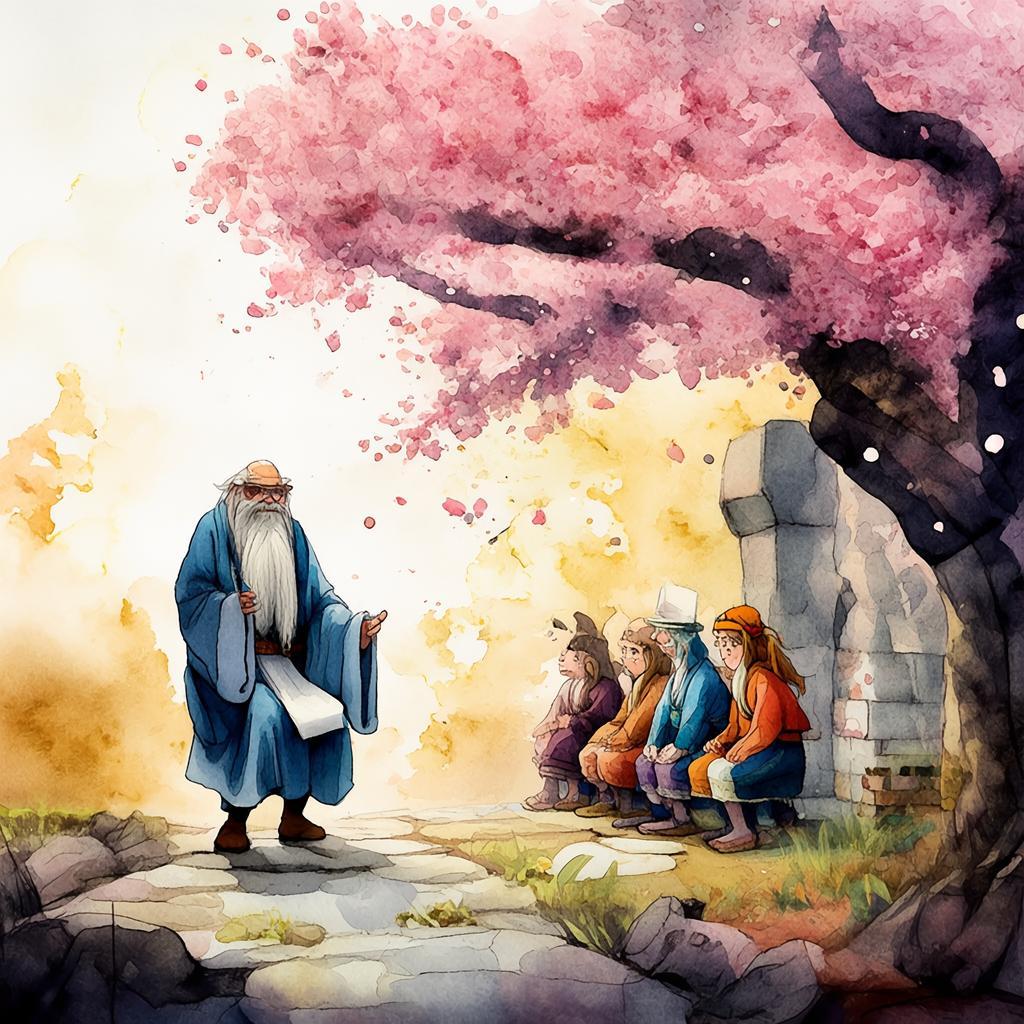
In the heart of ancient China, where the Yangtze River meandered through the hills, there lay a small village known for its craftsmanship. Among the artisans was a young man named Jing, whose hands had a natural grace when crafting the paddles used for fishing and river trade. Jing aspired to follow in his father's footsteps, a man esteemed for his integrity and skill.
One day, a mysterious figure approached Jing, offering to purchase his finest paddle for an exorbitant sum. The allure was too great, and Jing sold the paddle, not realizing it would lead to tragedy.
Days later, Hong, Jing's older brother, returned to the village, shrouded in mystery. He had become a river pirate, and the paddle Jing had sold had been used to guide a pirate ship to the village. The pirates descended upon the village, leaving destruction in their wake.
In the chaos, Jing's father was found dead. Guilt-ridden, Jing decided to join the pirates, seeking revenge. He rowed away with the paddle that had once symbolized his craft, now a tool of destruction.
However, during a fierce battle, Jing's paddle turned the tide, leading him to question the path he had chosen. He confronted Hong, who confessed his role in the pirate attacks. Forgiveness was the key to redemption, and together, Jing and Hong defeated the pirates.
The paddle, once a symbol of destruction, became a symbol of their unity and the strength of forgiveness. Jing returned to his craft, making paddles that were not only beautiful but also imbued with the power of redemption, teaching him the true meaning of the proverb, "He who seeks revenge, lives twice."
Through his journey, Jing learned the transformative power of forgiveness and the possibility of rebirth, forever changing the course of his life and the village he called home.
✨ Original Statement ✨
All articles published on this website (including but not limited to text, images, videos, and other content) are original or authorized for reposting and are protected by relevant laws. Without the explicit written permission of this website, no individual or organization may copy, modify, repost, or use the content for commercial purposes.
If you need to quote or cooperate, please contact this site for authorization. We reserve the right to pursue legal responsibility for any unauthorized use.
Hereby declared.
